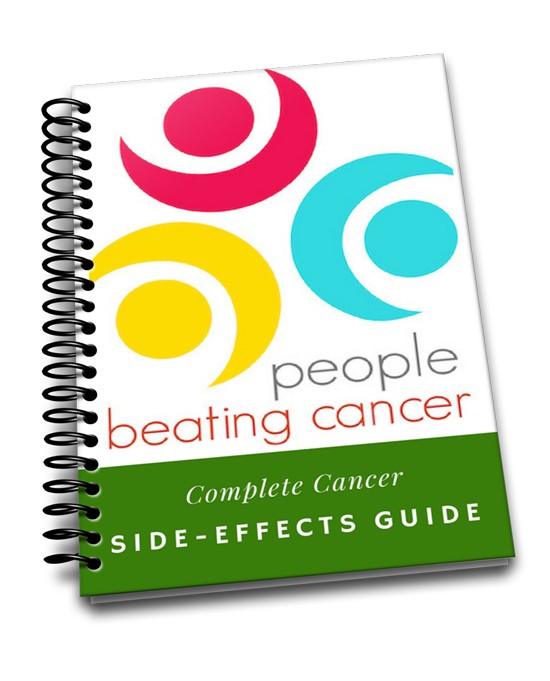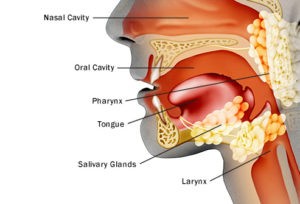Hyperbaric oxygen therapy is a safe and effective treatment modality offering durable relief in the management of radiation-induced osteoradionecrosis
Hi Cancer Coach- I went through 33 radiation treatments for base of tongue squamous cell carcinoma summer of 2012.
I have next to no saliva. I had a recurrence in 2015 and had an 8 hour surgery to do a resection and lymph node removal on the left side of my neck. I’m starting to have cramping followed by a numb tongue which had made eating difficult. I also cannot speak properly. Doctors have me doing exercises, massage, and now trying acupuncture next week. They tried Gabapentin and Cymbalta but not seeing any change in my symptoms. This late onset of the fibrosis symptoms is so frustrating.
I’m going to try cbd oil 1:1 too. Bob in Denver
Dear Bob in Denver-
First and foremost, I am sorry to read about not only your cancer diagnosis but your struggle with the relapse as well as side effects like your dry mouth. While you didn’t specifically ask any questions, since you came in on my blog post about healing side effects caused by radiation, I will assume that you are asking about any/all therapies to heal any of the side effects that you discuss in your post. I will excerpt your content in order to answer it.
1) your cancer “base of tongue squamous cell carcinoma” is now considered to be relapsed/refractory (R/R). When your cancer becomes R/R, according to the study linked below, your prognosis becomes more limited. I encourage you to consider more aggressive therapies. Not only conventional FDA approved therapies but consider evidence-based but non-conventional therapies as well- nutrition, supplementation, lifestyle, etc.
2) “I went through 33 radiation treatments for base of tongue squamous cell carcinoma summer of 2012. I have next to no saliva…” I believe this is a side effect of radiation called xerostomia. I suffered a mild case after my own radiation. The primary long-term concern is your gums receding causing your teeth to fall out. I too underwent acupuncture as well as mouthwashes (biotene) before bed and sometimes during the night. I chewed gun a lot. It’s worth keeping at it to minimize or eliminate your dry mouth.
3) “I’m starting to have cramping followed by a numb tongue which had made eating difficult. I also cannot speak properly.” I have no experience with these two side effects. Clearly they occur from the radiation but I don’t know anything about possible therapies- possibly HBOT- hyperbaric oxygen therapy. See the info below.
4) ” Doctors have me doing exercises, massage, and now trying acupuncture next week” I think that physical therapy may be helpful for all of your radiation-induced side effects. I have struggled with dysphagia (difficulty swallowing) for years and the only therapy that helps me is a variety of neck exercises.
5) “They tried Gabapentin and Cymbalta but not seeing any change in my symptoms.” There are serious side effects from these two therapies to consider as well.
6) “This late onset of the fibrosis symptoms is so frustrating.” I agree. My issues are different than yours but I work at staying out of a wheelchair.
Consider HBOT. I’m pretty sure that it could provide real benefit from some or all of your radiation damage.
I hope this helps. Let me know if you have any questions.
Hang in there,
David Emerson
- Cancer Survivor
- Cancer Coach
- Director PeopleBeatingCancer
Recommended Reading:
“Kaplan-Meier and log-rank tests showed that the 2- and 5-year survival rates were significantly lower in the recurrence group than in non-recurrence group (67.6% vs. 88.0%, 31.8% vs. 79.9%, P < 0.001)…”
“Chemotherapy and radiation therapy cause dry mouth by damaging the salivary glands. Chemotherapy causes dry mouth by making saliva thicker. But this is usually a temporary symptom that clears up about 2 to 8 weeks after treatment ends. Radiation therapy to the head, face, or neck may also cause dry mouth…”
“Bone and bladder symptoms were most likely to benefit from HBOT (response rate, 81% and 83%, respectively). Fifty percent of subjects with soft tissue necrosis/mucous membrane side effects improved with HBOT. The low response rate of salivary (11%), neurologic (17%), laryngeal (17%), and upper gastrointestinal symptoms (22%) indicates that these were more resistant to HBOT. Relapse incidence was low (22%), and minor HBOT-related complications occurred in 31% of patients.
Conclusion: Hyperbaric oxygen therapy is a safe and effective treatment modality offering durable relief in the management of radiation-induced osteoradionecrosis either alone or as an adjunctive treatment. Radiation soft tissue necrosis, cystitis, and proctitis also seemed to benefit from HBOT, but the present study did not have sufficient numbers to reliably predict long-term response.
“Hyperbaric oxygen therapy (HBOT) is an important advanced therapy in the treatment of problem wounds, including diabetic foot ulcers and late effect radiation injury. HBOT remains among the safest therapies used today…



